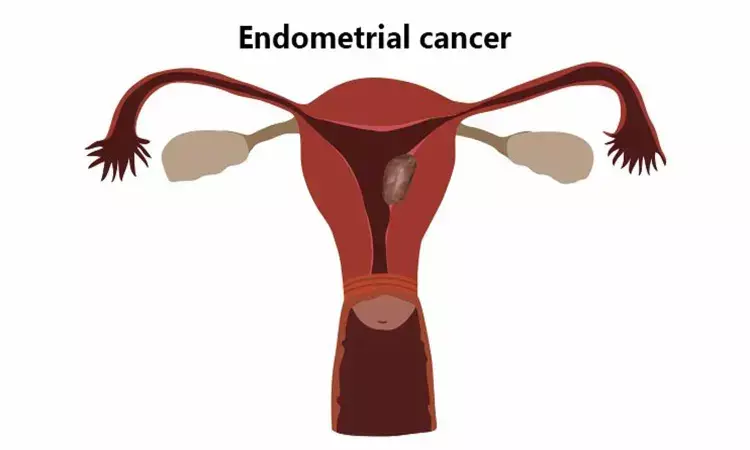- Home
- Medical news & Guidelines
- Anesthesiology
- Cardiology and CTVS
- Critical Care
- Dentistry
- Dermatology
- Diabetes and Endocrinology
- ENT
- Gastroenterology
- Medicine
- Nephrology
- Neurology
- Obstretics-Gynaecology
- Oncology
- Ophthalmology
- Orthopaedics
- Pediatrics-Neonatology
- Psychiatry
- Pulmonology
- Radiology
- Surgery
- Urology
- Laboratory Medicine
- Diet
- Nursing
- Paramedical
- Physiotherapy
- Health news
- Fact Check
- Bone Health Fact Check
- Brain Health Fact Check
- Cancer Related Fact Check
- Child Care Fact Check
- Dental and oral health fact check
- Diabetes and metabolic health fact check
- Diet and Nutrition Fact Check
- Eye and ENT Care Fact Check
- Fitness fact check
- Gut health fact check
- Heart health fact check
- Kidney health fact check
- Medical education fact check
- Men's health fact check
- Respiratory fact check
- Skin and hair care fact check
- Vaccine and Immunization fact check
- Women's health fact check
- AYUSH
- State News
- Andaman and Nicobar Islands
- Andhra Pradesh
- Arunachal Pradesh
- Assam
- Bihar
- Chandigarh
- Chattisgarh
- Dadra and Nagar Haveli
- Daman and Diu
- Delhi
- Goa
- Gujarat
- Haryana
- Himachal Pradesh
- Jammu & Kashmir
- Jharkhand
- Karnataka
- Kerala
- Ladakh
- Lakshadweep
- Madhya Pradesh
- Maharashtra
- Manipur
- Meghalaya
- Mizoram
- Nagaland
- Odisha
- Puducherry
- Punjab
- Rajasthan
- Sikkim
- Tamil Nadu
- Telangana
- Tripura
- Uttar Pradesh
- Uttrakhand
- West Bengal
- Medical Education
- Industry
Adiposity tied to increased progression of endometrial cancer, study finds

USA: Results from a recent study in the journal Gynecologic Oncology suggest that increased adiposity is a likely contributor to accelerated endometrial cancer (EC) growth and proliferation. Further, the intratumoral and paracrine adipose environments were found to have EC cell growth and proliferation. Also, there was a presence of endocrine effects but were sporadic with less impact on the tumorigenic pathways studied.
The annual incidence of endometrial cancer (EC) is estimated to increase by1–2%. Currently, more than half of all endometrioid EC diagnoses are attributable to obesity -- an independent risk factor for EC. Multiple epidemiologic studies have shown that obesity significantly increases the risk of several cancer types, however, there is no clarity on the mechanisms by which obesity contributes to EC progression.
Considering the above, Logan Blankenship, UT Health Science Center, San Antonio, and colleagues aimed to compare the effects of adiposity on endometrioid endometrial cancer cells in a paracrine, endocrine, and intratumoral environment both in-vitro and in vivo.
For this purpose, the researchers collected all patient samples, EC tissue, serum, and adipose tissue through the institutional tumor registry under IRB approval. For a paracrine-like environment representation, primary EC tissue-derived cells and established EC cell lines were treated with primary adipocyte conditioned medium (ADP-CM) and co-cultured together in a communicating chamber (co-culture assay). By culturing primary and established EC cells in low vs. high BMI patient serum, the endocrine effect was mimicked.
The effect of adiposity on EC cells was determined. Using RNA-seq, Western blotting, RT-qPCR, and reporter assays, mechanistic studies were conducted. To look at the effect of the tumor microenvironment in vivo, xenograft models were used in which cancer cells were co-implanted with or without adipocytes.
Following were the salient findings of the study:
- Treatment of established and primary EC cells with ADP-CM, co-culture, and stimulation with high BMI patient serum increased EC proliferation, long-term colony formation, and growth of EC organoid models.
- Mechanistic studies showed that all three environments also enhanced the expression of several oncogenic signaling pathways including STAT3, mTOR, Akt, and MAPK in EC cells.
- RNA-seq studies showed that ADP-CM treatment significantly altered the expression of 209 genes compared to control.
- Gene set enrichment (GSEA) analysis showed that ADP-CM regulated genes positively correlated with cytokine and STAT3 mediated signaling pathways, stem cells, inflammation, TGFβ, and interferon signaling pathways.
- In xenograft assays using SCID mice, co-implantation of EC cells with adipose cells significantly enhanced EC tumor growth in vivo.
"The findings can help to focus future study on pathways affected by visceral adipose at the tumoral level in obese patients to find new targets for future therapies," the authors concluded.
Reference:
The study titled, "The role of adiposity in endometrioid endometrial cancer," was published in the journal Gynecologic Oncology.
DOI: https://doi.org/10.1016/j.ygyno.2021.10.049
Dr Kamal Kant Kohli-MBBS, DTCD- a chest specialist with more than 30 years of practice and a flair for writing clinical articles, Dr Kamal Kant Kohli joined Medical Dialogues as a Chief Editor of Medical News. Besides writing articles, as an editor, he proofreads and verifies all the medical content published on Medical Dialogues including those coming from journals, studies,medical conferences,guidelines etc. Email: drkohli@medicaldialogues.in. Contact no. 011-43720751


